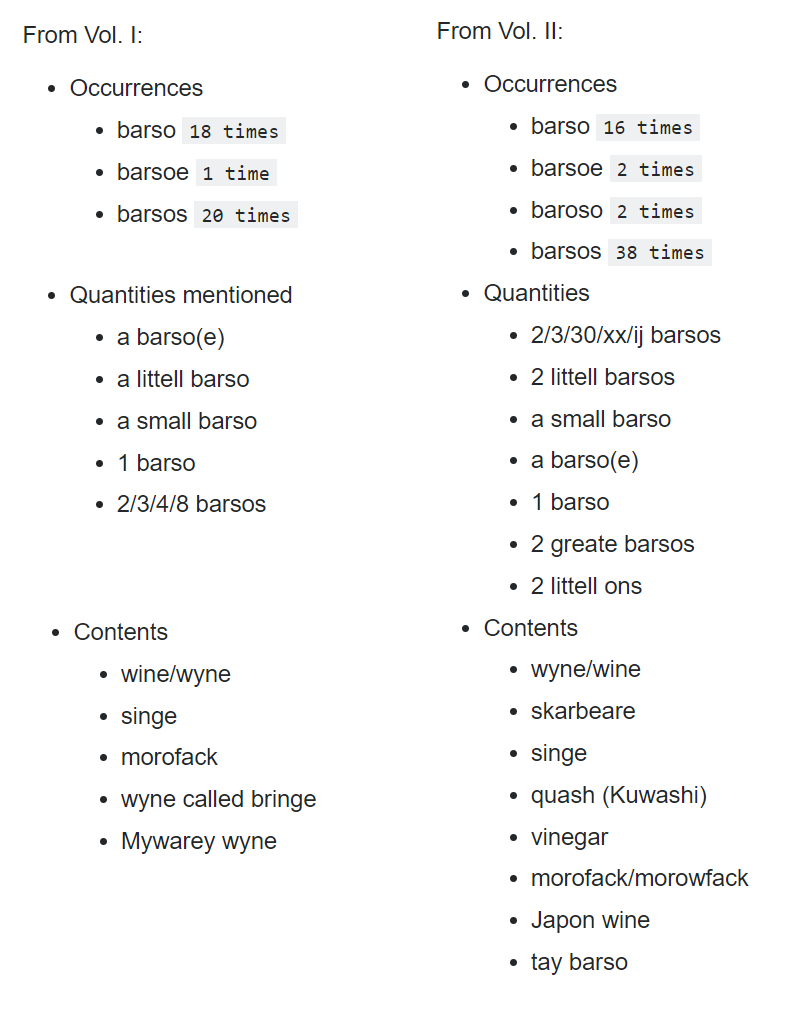Question
In his diaries documenting his time in Japan, Richard Cocks mentions barsos frequently, apparently meaning some kind of liquid containing vessel (mostly in reference to [gifts of] alcohol, but occasionally vinagre and other liquids). This word unusually is not included in the footnotes explaining almost every foreign term that he uses (mostly Japanese, with a few Portuguese and Spanish).
Does anyone know the etymology of this word?
Example usage:
October 28.—Goresanos wife brought her doughter of 20 daies ould to the English howse, with a present of a barsoe of wyne, figges, and oringes, desiring a name to be given her, which was per consent Elizabeth.
Note: In his diaries, wine is described as also coming in bottel, barica/barrico, barell/barrill/barille, butt and jarr. Specifically Spanish wine is never described as coming in barsos (it is most commonly described as coming in bottells, and occasionally in barica/barricos, barrels or butts). This might suggest that barsos weren't European made vessels, and were a kind encountered in Japan?
Data from diaries:

